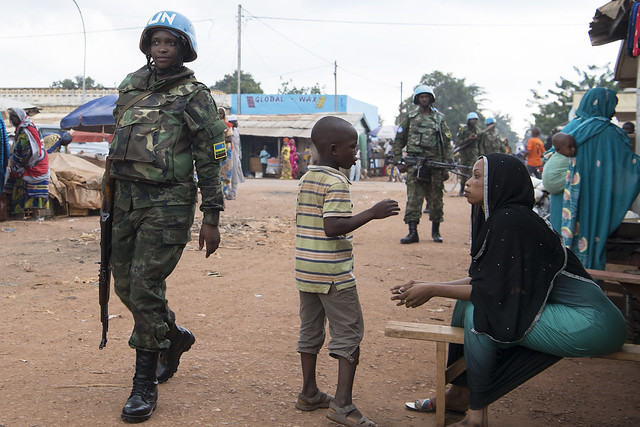Where has European aid gone to the Congo?
(BRUXELLES2) What has happened to European aid in the DRC? This is the question posed by the European Court of Auditors. The report, published at the beginning of October, thus denounces a “ evaporation of funds » believing that the impact of the aid provided to the Democratic Republic of the Congo has remained very « limit ", generally (*). Security-specific programs (**) don't fare much better. A stone in the pond for both the European Commission and the EEAS, which minimize the negative effects.
Overall negative balance
In general, the assessment drawn up by the auditors is, in fact, very mixed. " Less than half of the programs reviewed have produced, or are likely to produce, most of the expected results. « Progress is slow, uneven and overall limited". Even more disturbing: in most cases, it is an illusion to think that sustainability will be assured”. For the Court of Auditors the Commission has not taken sufficient account of the situation when designing EU programmes”.
“Risks have not been sufficiently taken into account, program objectives are often too ambitious, conditionality has a weak incentive effect and political dialogue has not been fully exploited or coordinated in a way adequate with EU Member States in all areas. Nevertheless, experts admit the complexity of the country's situation and the difficulties that arise from it.
The “Support for the formation of the Integrated Police Unit” (UPI) program, initiated in May 2004 had a budget of 5 million. The UPI succeeded in " establish a unit of 1000 highly trained police officers with the necessary logistical support and equipment, and it achieved the expected results in providing security for the constitutional referendum and elections in 2005 and 2006". The problem is that after the ballot, there is " no information regarding the redeployment of personnel and equipment once the program is over ". Without a trace of trained police officers, the results are non-existent.
(b) Specific action in Eastern Congo
In 2008, 10 million are allocated to the “Support Program for Peace and Stabilization in Eastern DRC”. The police component of the program (2,9 million) has only partially achieved planned results ". THE " buildings, facilities and equipment for two mobile intervention units and the regional police headquarters in Goma and Bukavu "have been provided but the works have " suffered from long delays and are of poor quality ". At the time of the Court's visit, " the funded facilities in Bukavu were not yet in use. In Goma, they were not yet operational due to lack of water and electricity, which were supposed to have been installed and financed by the police authorities running. The conclusion is obvious: “ the program has not been effective in improving the operational capacity of the police in the region”.
(c) “National Police Reform Support Program (PARP)”
The objective of this program, endowed with 11 million, was to support the reform of the Congolese national police by strengthening the coordination capacities of the Police Reform Monitoring Committee (CSRP), the reorganization of the management of resources human and budgetary resources and the improvement of training infrastructures. It receives assistance from EUPOL DRC. Initiated in August 2010, the program is located at an early stage of implementation at the time of the Court's visit. The creation of a database of human resources, a key step for the reform of the police, has already been done. However, it is its durability that is " cause for concern as there were no plans for computer maintenance of the system after the end of the EU-funded technical assistance".
The Commission refutes the conclusions of the report
Both the European Commission and the EEAS refute these conclusions. Some projects reviewed were at a very early stage of implementation and had therefore not yet produced results. The delays are mainly due to the fragility and post-crisis situation in the DRC”. There are successes, we believe on the Commission side. " For example, during the 2006 elections and for the overall management of public finances.» Faced with the accusation of lack of judgment, the Commission and the EEAS “consider that the DRC context and risks have been sufficiently taken into account ».
(*) The study covers the period 2003-2011, during which the European Union, the country's main donor, spent some 1,9 billion euros to support the 2006 and 2001 electoral processes (presidential and legislative), reform of the security sector (justice and police), public financial management (PFM), political reform and decentralization.
(**) The security issue was an EU priority in the country. “Bringing security to the population” was one of the main objectives of the European Union, to allow political transition and the conduct of the 2006 and 2011 elections. The major shortcoming of the Congolese national police is the lack of equipment and infrastructure, inadequate and slow preparation, salaries paid irregularly ". Worse still, as a consequence of the culture of trickle-up, the police, like the army, live off the population. »
Download the Report (English)

